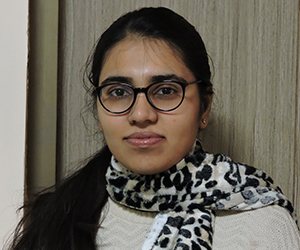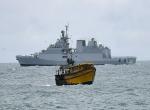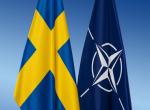Keeping up with the momentum of 2015 which was a historic year in terms of high level bilateral visits, External Affairs Minister Sushma Swaraj paid a successful visit to Sri Lanka on February 5 and 6, 2016, right at the beginning on New Year. She attended the 9th Session of The Joint Commission Meeting, during which a range of issues were discussed. EAM carried out a comprehensive review of India’s relations with Lanka in the course of her high level meetings, covering major aspects of our bilateral relation.
Salient features of discussion in The Joint Commission meeting:
The Joint Commission meeting was held after a gap of three years. It reviewed the progress and developments in bilateral relations since the 8th Session held on January 22, 2013. Prominent points discussed were as follows:
- The Joint Commission acknowledged the depth, intensity and uniqueness of the multifaceted India-Sri Lanka relations encompassing all spheres and founded upon civilizational and close people-to-people linkages.
- Discussions took stock of the preparations underway on both sides to begin negotiations on the Economic and Technology Cooperation Agreement. India will be holding a workshop in early March in Colombo on Non-Tariff Barriers (NTB) and Phytosanitary Barriers (PTB) regulations and procedures. Cognizance was taken of the reconstitution of the CEOs Forum on either side or the proposals from the Export Promotion Board of Sri Lanka for increasing trade linkages.
- The Joint Commission also discussed ways for further collaboration in various projects that have been under discussion, including the up gradation of Palali Airport, infrastructure development at Kankesanturai Port, Sampur power plant and a Special Economic Zone in Trincomalee, etc.
- The Joint Commission urged early signing of the revised Air Services Agreement that has been pending since September 2013. Both sides agreed to enhance cooperation in the aviation sector, including in areas of aeronautical search and rescue, capacity building and training and use of the Indian satellite system GAGAN.
- The Joint Commission discussions included a detailed review of the development cooperation projects between the two countries. The Indian project for construction and repair of 50,000 houses was reviewed. The Joint Commission expressed satisfaction over the completion of 44,000 houses and noted that construction was expected to commence shortly for construction of the remaining 4,000 houses in Uva and Central Provinces.
- The Joint Commission felt that the Small Development Projects (SDP) scheme had been an excellent model for the development partnership between India and Sri Lanka, and noted that the bilateral MoU in this regard had been renewed in September 2015.
- The Programme on Cultural Cooperation for 2015-18 was reviewed. The Joint Commission also took stock of the Festival of India "Sangam” as a celebration of the shared civilizational heritage between the two countries.
- Cooperation in the sector of education was assessed, including the scholarships available to Sri Lankan students in India.
- Defence cooperation has been a key area of long standing cooperation between India and Sri Lanka. The Joint Commission encouraged further intensification of cooperation through the several defence related mechanisms already in place and acknowledged the importance of cooperation in counter terrorism and agreed on the need for the two countries to work together.
- Both sides agreed to find a permanent solution to the fishermen issue. In this regard, the Sri Lankan Fisheries Minister was invited to visit India. The invitation was accepted.
- The Indian Government’s grant assistance for setting up and operation of the emergency ambulance services in the Western and Southern Provinces of Sri Lanka was also appreciated. The two sides further discussed areas of cooperation in the health sector: private sector investments, traditional medicine, training opportunities, etc.
- The Joint Commission acknowledged the ancient and well-established systems of traditional medicine in India and Sri Lanka, and encouraged collaboration in this area.
- It emphasized upon the importance of close links between the elected representatives of both countries.1
- The Sri Lankan and Indian Foreign Minister agreed to schedule the 10th Joint Commission meeting in February 2017 in India.
High Level Meetings of EAM:
The External Affairs Minister met prominent leaders of various political parties.
- R Sampanthan, Chief of Sri Lanka’s main Tamil party, TNA and Leader of Opposition in Parliament, briefed the visiting Minister on the various efforts that have been made by the government since January last year in moving forward the reconciliation process, the political process and expressed readiness to work with the government in fulfilling the aspirations of the people of Sri Lanka. Sampanthan later said that India should remain concerned in getting the Tamil question resolved ‘in a reasonable way and in an amicable manner’. He also raised the problem being faced by fishermen of the Northern Province due to “bottom trawling”, allegedly by fishermen of Tamil Nadu, and wanted the Indian government to reduce this method of fishing.
- Naseer Ahamed, Chief Minister of the Eastern Province and Deputy Leader of the Sri Lanka Muslim Congress and his party colleagues, during their meeting with the EAM, assured that their party supported the process of expeditious constitutional reforms
- EAM also met leaders of Tamil Progressive Alliance (TPA) and Ceylon Workers Congress (CWC), an Indian origin Tamil party. TPA chief Mano Ganesan wanted India to show as much concern to persons of recent Indian origin as to Tamils in the Northern and Eastern provinces.
External Affairs Minister’s Meeting with President Sirisena:
EAM conveyed to Sri Lankan President Sirisena, Government of India’s appreciation and support for Sri Lanka’s policies on reconciliation and the development and that India was fully satisfied with the programmes of the new government. She added India admires his recently delivered speech in Parliament, stating that he would take the country towards development while bringing about the peace and reconciliation among every community.
In his response, President Sirisena, who commended the support provided to Sri Lanka by India, thanked the Indian government for its comprehensive assistance in the reconciliation process and economic proposals especially in this critical moment. “India has been a friend of Sri Lanka for a long time. That is why I selected India for the first state visit after my election as the President”, said Sirisena.
Conclusion:
A dramatic turnaround had taken place in India-Sri Lanka relations after President Sirisena assumed office as new President of Lanka. This development gelled well with Prime Minister Modi’s policy of developing and strengthening close ties of friendship with India’s neighbours, have set a welcome trend of closer bilateral cooperation and continued high level political visits. In this backdrop, EAM’s visit is seen in a positive light in both the countries. Major emphasis was on economic cooperation and rightly so as Sri Lanka is India’s second largest partner in SAARC and India is Sri Lanka’s fourth largest trading partner. Trade is increasing significantly and in terms of broad sectors of cooperation, things are moving forward.
This visit has acted as a catalyst by providing an opportunity to all the key stakeholders to dispel misunderstandings, if any, by voicing their opinion. This was evident from the fact that a day after Indian External Affairs Minister concluded her Lanka visit, Global Tamil Forum (GTF), London based Tamil Diaspora organization, has also sought to engage with India in reinforcing the moderate majority to support the new Sri Lankan government to reach reconciliation. Thus these high level political visits are a welcome step as they help to generate an atmosphere of trust and mutual respect among not only the two countries, but also all stakeholders, something that is cardinal for bolstering bilateral relations as well as reconciliation within Sri Lanka.
Endnotes:
1 Ministry of External Affairs, Visit of Hon'ble External Affairs Minister of India, Smt. Sushma Swaraj to Colombo, February 5-6, 2016
Published Date: 22nd February 2016, Image Source: http://www.odishanewsinsight.com
(Disclaimer: The views and opinions expressed in this article are those of the author and do not necessarily reflect the official policy or position of the Vivekananda International Foundation)










Post new comment